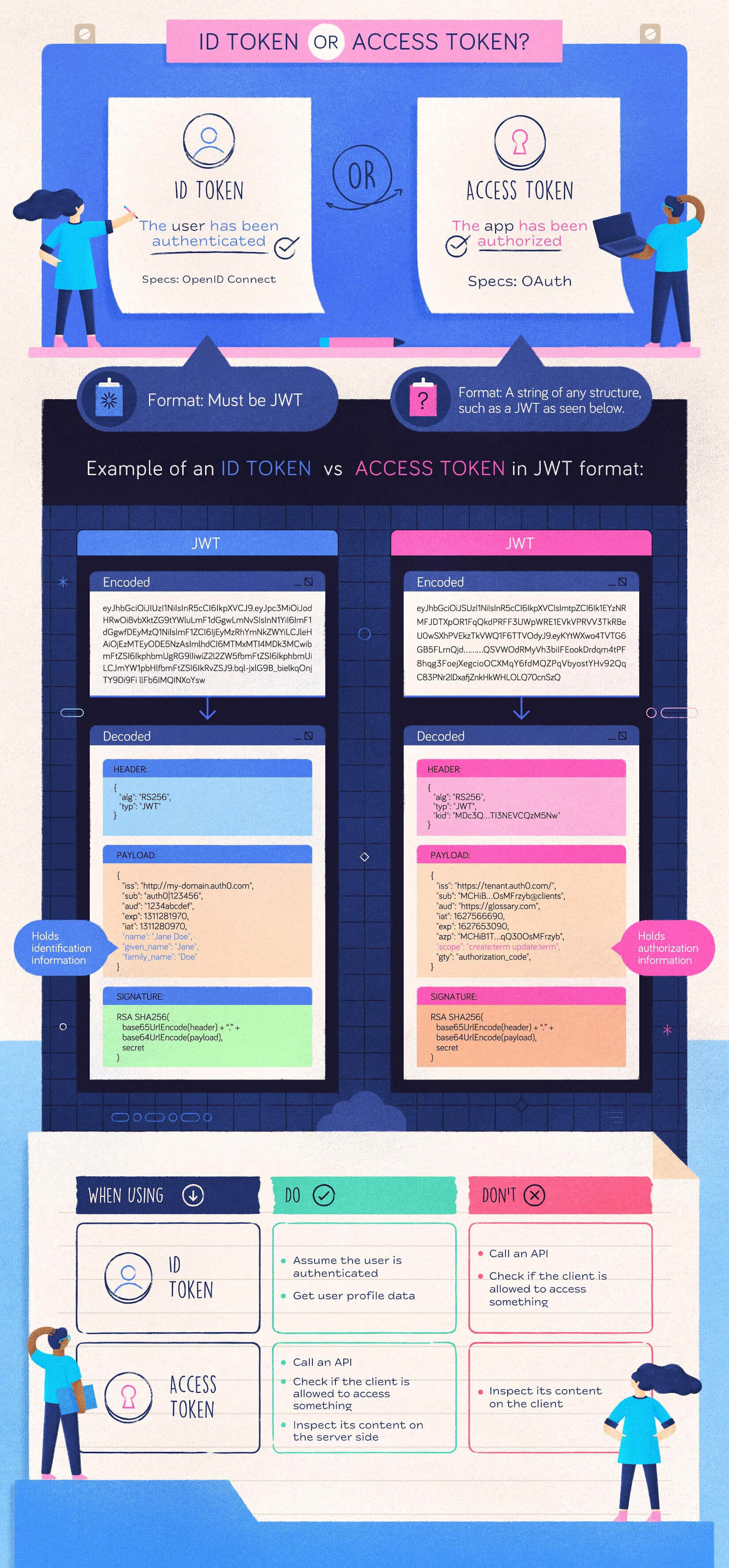Replies: 2 comments 6 replies
-
|
You make claims that RabbitMQ should do this or that without any justification. @MarcialRosales do you have an opinion? Is this something that we have seen interest in elsewhere? |
Beta Was this translation helpful? Give feedback.
-
|
Hi @sanglt , as it is clearly explained in the diagram you attached, the id_token is used for authentication, i.e. to identify who the user is and gather extra information about the user's profile such as family name, etc. The access_token is used for authorization and it carries the most important claim which is I am planning on adding OKTA idp to our RabbitMq Oauth2 tutorial repo. You are very welcomed to contribute a PR. |
Beta Was this translation helpful? Give feedback.

Uh oh!
There was an error while loading. Please reload this page.
-
Our org want to use Oauth2 OIDC with Okta as an IdP. I tried the integration with Azure AD and it is working but not Okta.
After looking into the way RabbitMQ work, I can see the oidc client use
access_tokenfrom the response https://github.com/rabbitmq/rabbitmq-server/blob/main/deps/rabbitmq_management/priv/www/js/oidc-oauth/oidc-client-ts.js#L2311I think the reason for this is backward work with OAuth2 flow? In fact many of OIDC client use the ID Token for the user identity, and access_token is for call external API.
Okta case above use a difference keys signed for id_token (tenant own) and access_token (okta own). The jwt_keys endpoint is only return the tenant own key and I get the error:
Authentication using an OAuth 2/JWT token failed: {error,key_not_found}when making a call to RabbitMQ Management /api/whoami endpoint.Beta Was this translation helpful? Give feedback.
All reactions